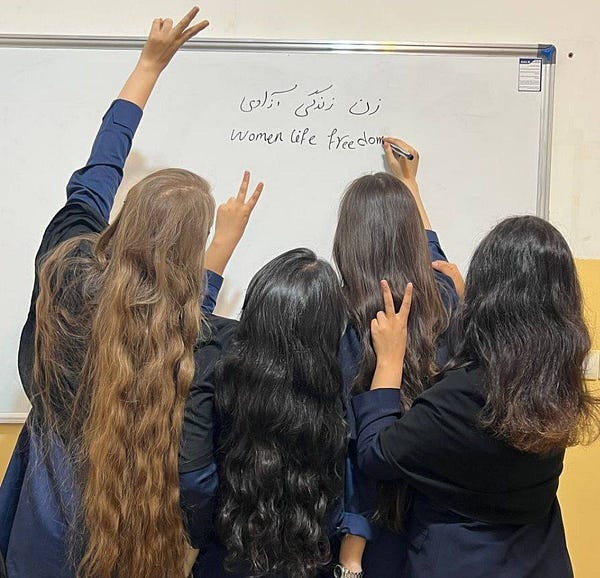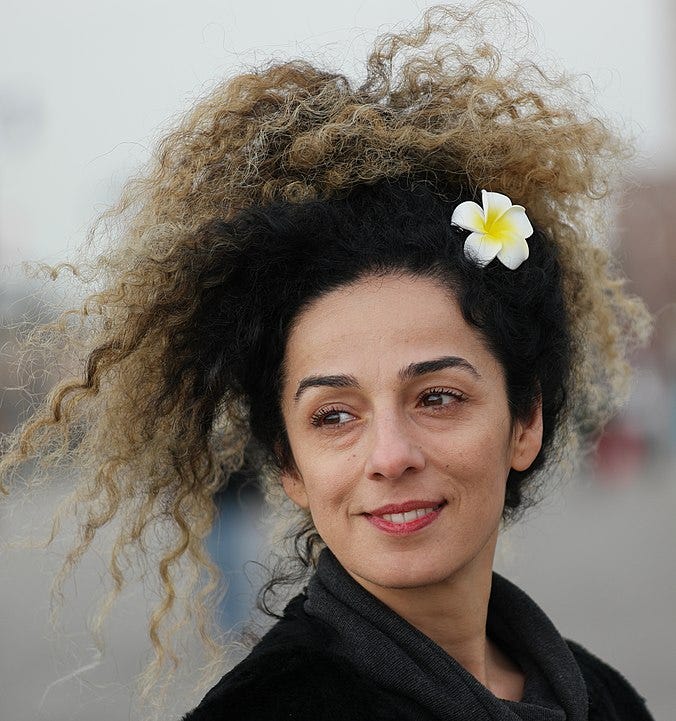The Iranian Regime Wants Her Dead, Masih Alinejad is Undaunted
Sitting in on "Honestly," the cost of fighting for freedom, and whether this time is different
I have never interviewed someone who had to switch safehouses while we were setting up the interview. But there’s a first time for everything, and last week I spoke to Masih Alinejad, an Iranian activist and journalist who has been repeatedly targeted by the Iranian regime here on American soil after she was expelled from her home country.
I sat in for Bari Weiss on her podcast “Honestly” while she is out on parental leave (Mazel!) and got the opportunity to talk to this brave woman about the many brave women of Iran who are in the streets, standing up against compulsory hijab and the Iranian theocracy. While we were shipping Masih her mic, we had to switch gears and have it sent to another address when the safehouse she had been occupying became suddenly less safe. Such is the life of an activist trying to speak out while staving off at least one kidnapping attempt from her Brooklyn home and an attempted murder at the same address.
I would not say she is unfazed, but she is certainly unbowed. She would also emphasize, and does in this interview, that her travails are not the ones on which we should be focused. Instead, she pointed to the constant updates she was getting on the tragic stories of young women and girls killed at the hands of Iranian morality police for speaking out. It started with Masah Amini, who was arrested in mid-September for wearing a hijab improperly so that some of her hair showed. She died in police custody. Since then, several other teenagers have met similar fates. Sarina Esmaeilzadeh, 16, who loved singing and cooking. Nika Shahkarami, also 16, who burned her headscarf in public before disappearing, only to be identified in a state morgue weeks later. The number of protesters killed, hurt or jailed, continues to grow, and is likely much higher than official counts.
Countless women have shown their hair in public, cut their hair defiantly on camera, shared their protests on social media, and been joined by Iranian men, all of them shouting slogans like “Women, Life, and Freedom!” and “Death to the dictator!” Protesters have been banned specifically from sending messages or videos to Masih, and the Ayatollah himself singled her out in a speech last week about “traitorous Iranians abroad.”


I am absolutely amazed by people who must flee their countries, leaving those they love behind and in danger, and persist in their efforts despite the immense fear and costs of doing so (Badiucao is another dissident, a Chinese artist living in Australia, whom I’ve spoken to about his work for this Substack). Masih is right that the light should not just be on her struggles, but she is a beautiful and powerful window into the lives of women, still living in Iran, to whom we cannot easily speak.
We get into her thoughts on whether this is different from the Green Movement or 2017 uprisings in Iran and how, the weight of being a leader in a movement like this
, how Western feminists respond, how U.S. policymakers should respond, what it feels like to grow up as a minority or a woman in Iran, and why young people with no cultural memory of freedom are willing to die for it.
"This time it's totally different. We've never seen women in protests burn headscarves. This is going to be the end for a regime that tries to control whole society through women. The Islamic Republic wrote their ideology on our body,’ she said.
Take some time to listen. Sometimes headlines and news stories don’t capture, and our lives and consumption of news don’t allow for, the stakes and the emotion for those on the ground in truly repressive regimes. Masih allows us that perspective.
If you enjoyed this, you can also subscribe to my podcast, “Getting Hammered,” here!




